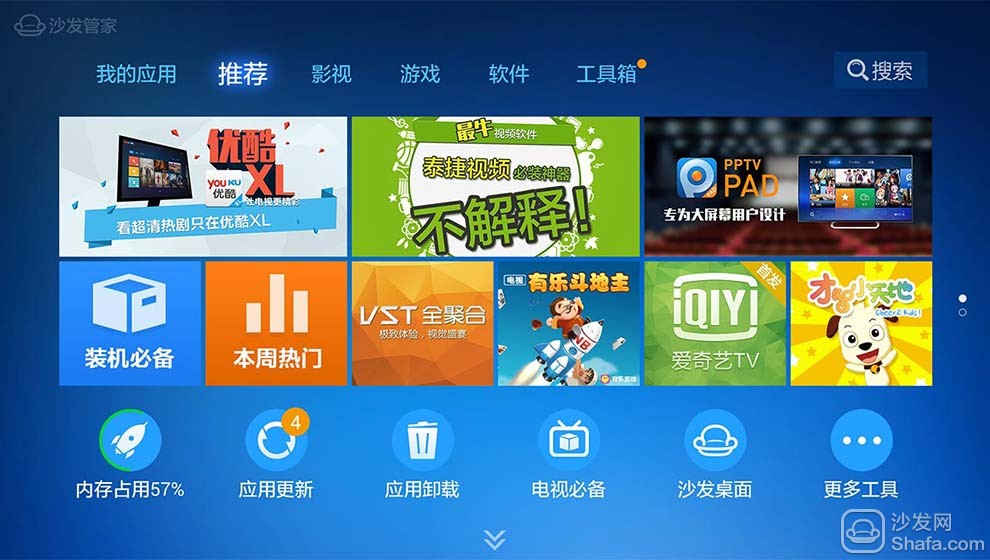
Qualcomm and other companies are developing Wi-Fi/LTE converged network technology, which is expected to solve the basic problem of mobile Internet: high traffic costs.
The rapid spread of smart phones and mobile Internet has made many people familiar with a few specialized vocabulary: 3G, 4G and Wi-Fi. Most people do not understand the technical meaning behind these phrases, but in practice people quickly summarize their differences: 3G/4G is charged by traffic, and Wi-Fi is either free or charged by time, which is too cheap compared to the former. too much.
As a result, many budget-conscious users will find Wi-Fi hotspots all over the world and ask for passwords everywhere. As long as the mobile phone is connected to Wi-Fi, you can safely navigate the online world and send videos to your buddies and download music one by one. A Wi-Fi hotspot is like an oasis in the desert. When you leave a hotspot, you can only count on the farmer's spring in your backpack.
However, as public Wi-Fi signals have been seen everywhere, the experience of switching back and forth between mobile data networks and wireless hotspots is not satisfactory. Almost every time you change a hotspot, you will need to log in again. Those applications that are automatically logged in have security risks. Because of these troubles, many times users prefer to continue to use traffic and do not bother to switch back and forth between the two networking modes.
The upcoming new technology of communication technology companies such as Qualcomm and Alcatel will solve this problem. The new mobile phone chip can use both networks at the same time or seamlessly switch between networks. After the operator upgrades the technology, the smart phone can automatically recognize the available Wi-Fi signals around it, and can access the operator's Wi-Fi hotspot without user intervention. In the process of switching, the public network IP of the device will not change, and the existing communication between the OS and the application will not be interrupted. And even if the device is connected to a public hotspot, it can still ensure the privacy and security of the communication.
Consumers certainly welcome this feature: First, inquire about the location of hot spots, the trouble of hot landing mode disappears; at the same time, because the mobile phone will automatically connect when it gets a Wi-Fi signal, it virtually increases the time for using hotspots, and reduces 3/ The 4G network's traffic consumption - in other words, it saves money and saves money.
However, new technologies may make operators more excited. Many operators spend a lot of money and energy to lay out public Wi-Fi hotspots. However, these hotspots are difficult to use and can't share the data pressure of 3/4G networks. In reality, many communication traffic that can be carried by low-cost Wi-Fi hotspots still run on 3G networks, which is a great waste of network resources. If widely distributed Wi-Fi hotspots can function as wireless communication base stations and the two networks are seamlessly integrated, the data pressure on the 3/4G network can be greatly reduced; at the same time, operators only need to add a lot of low-cost Wi- Fi hotspots can easily cover places such as offices, shopping malls, hotels, subways, and public transportation. The wireless data requirements of these sites account for the majority of mobile communication demand. In other words, the new technology allows operators to significantly reduce the cost of network construction.
After the cost is reduced, operators can finally provide users with much cheaper wireless network tariff plans. In the future, the billing of public Wi-Fi and 4G networks is likely to be combined to provide a unified package of ultra-large and even unlimited traffic. Because most high-traffic demand scenarios are covered by low-cost Wi-Fi hotspots, even unlimited traffic packages will not put too much pressure on operators. After all, Wi-Fi hotspots do not require costly base stations, and maintenance is much easier than 4G base stations. As for the user side, as long as they can get low-cost, high-speed and stable network services, nobody cares whether the mobile phone is connected to a 4G network or a Wi-Fi hotspot.
Once the monthly unlimited traffic service has become the mainstream of the market, the last and biggest stumbling block to the development of the mobile Internet will no longer exist. Mobile applications no longer need to consider data traffic restrictions, and can confidently use a variety of advanced technologies and services. The 3D real view will become the default function of the map service. The video application can be seen everywhere in the shopping application. The mobile game can also use the tall cloud rendering, and so on. Perhaps the most benefit is the variety of communication applications – why not keep a traditional phone that counts in minutes when you use the app to make calls without considering traffic consumption? The phone number will enter the history, replaced by the Internet era ID system. In this wave, the major Internet companies will further strengthen the penetration of consumer life, and traditional operators will also be completely pipelined and become the providers of basic services. They will be willing to charge users a fixed monthly fee.
Ten years after the rapid development of smart phones, the mobile Internet industry finally saw the dawn of an unlimited flow of the era. Fortunately, the requirements for the construction of a large unified network are not high for operators. The main tasks for everyone are software upgrades and billing changes. Mobile phone manufacturers will soon apply new technologies to prepare for their popularity. In another two to three years, ultra-low flow rates and even unlimited monthly subscriptions will quickly become mainstream with the 4G/Wi-Fi converged network. We are finally at the end of the day when we are scared of traffic and run around to find out about hotspot passwords: In addition to the hard-working husbands who are going to be chased by his wife's video every day, I am afraid that everyone will be happy.
Recommended installation sofa butler, download address: http://app.shafa.com/

Hot Apps Recommended: HDP VST All-in-one Fast-viewing film Dragons Live Karaoke King TV Thumb Playing ZAKER